
Comprehensive pollinator planning and outreach for UM Central Campus: Raising awareness, enhancing habitat, and celebrating achievements
Our project focuses on comprehensive pollinator planning and outreach for UM Central Campus through raising awareness, enhancing habitat, and celebrating achievements. Working with the Office of Campus Sustainability's Anya Dale and Grounds Services' William Kronberg, we achieved Bee Campus USA certification approval, an initiative of the Xerces Society for Invertebrate Conservation that establishes national recognition for the university as an academic institution engaging in sustainable pollinator conservation efforts and practices. We have successfully enhanced pollinator habitat on campus, created education and outreach materials relating to pollinator conservation, and cultivated a support network of champions to carry out future conservation efforts.
Zoe Bliss, Savanna Delise, Zhelin (Penny) Li, Rachelle Roake, Beth Weiler
Project Advisor & Team Members
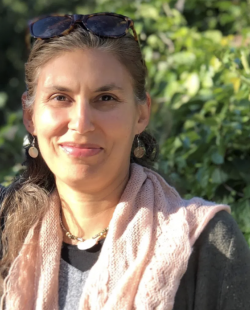
Lecturer and Academic Program Specialist at UM School for the Environment and Sustainability (SEAS)
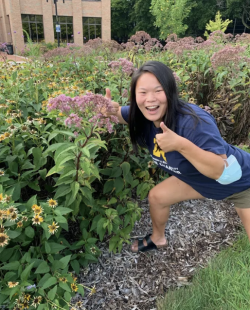
Behavior, Education, and Communication & Ecosystem Science and Management
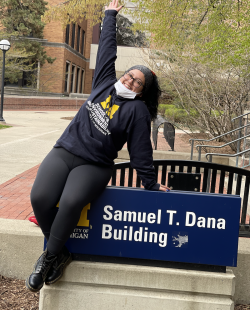
Ecosystem Science and Management & Environmental Justice
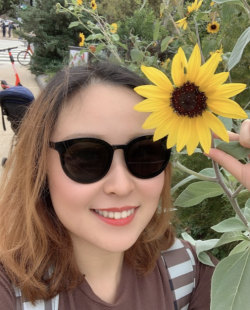
Landscape Architecture & Ecosystem Science and Management
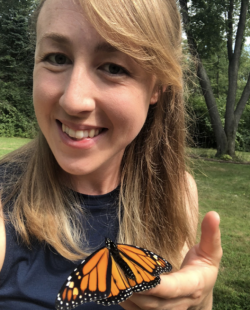
Landscape Architecture

Ecosystem Science and Management
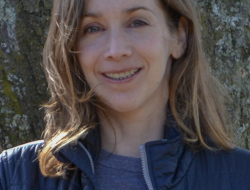
Anya Dale, Project Client
Manager of Waste Reduction and Engagement for Office of Campus Sustainability
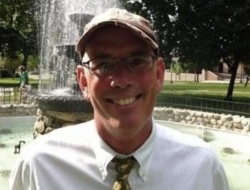
William Kronberg, Project Client
Horticulture Supervisor for Grounds Services
Project Overview
Pollinators are essential for the reproduction of over 85% of the world’s flowering plants, which includes more than two-thirds of the world’s crop species. Pollinators are also necessary in most terrestrial ecosystems as roughly 25% of all birds and mammals depend on insect pollination for the fruits and seeds that make-up their diet. Despite pollinators being crucial to our environment and food security, many species are suffering from habitat loss, introduced diseases, and drastic population declines. At the University of Michigan, there is still an essential need for comprehensive pollinator planning, education, and outreach in order to better conserve our threatened pollinating species. By raising awareness, enhancing habitat, and celebrating achievements, our project can help to foster a community that engages in sustainable, pollinator conservation practices.
Project Clients
Our clients for this project were Anya Dale, Manager with Waste Reduction Management for the Office of Campus Sustainability and William Kronberg, Horticulture Supervisor for Grounds Services. Both clients engage in sustainability practices across campus that enhance pollinator conservation efforts. With Anya working for the Office of Campus Sustainability and William working for Grounds Services, their departments continuously collaborate in ways to make campus landscapes more diverse in habitat and more sustainably managed.
Project Goals
The goals of our project are to raise awareness, enhance habitat, and celebrate achievements. More specifically, we aim to:
- Raise campus-wide awareness for pollinator conservation
- Enhance pollinator habitats on campus
- Build a community support network for long-term stewardship of pollinator habitat and curriculum and outreach events
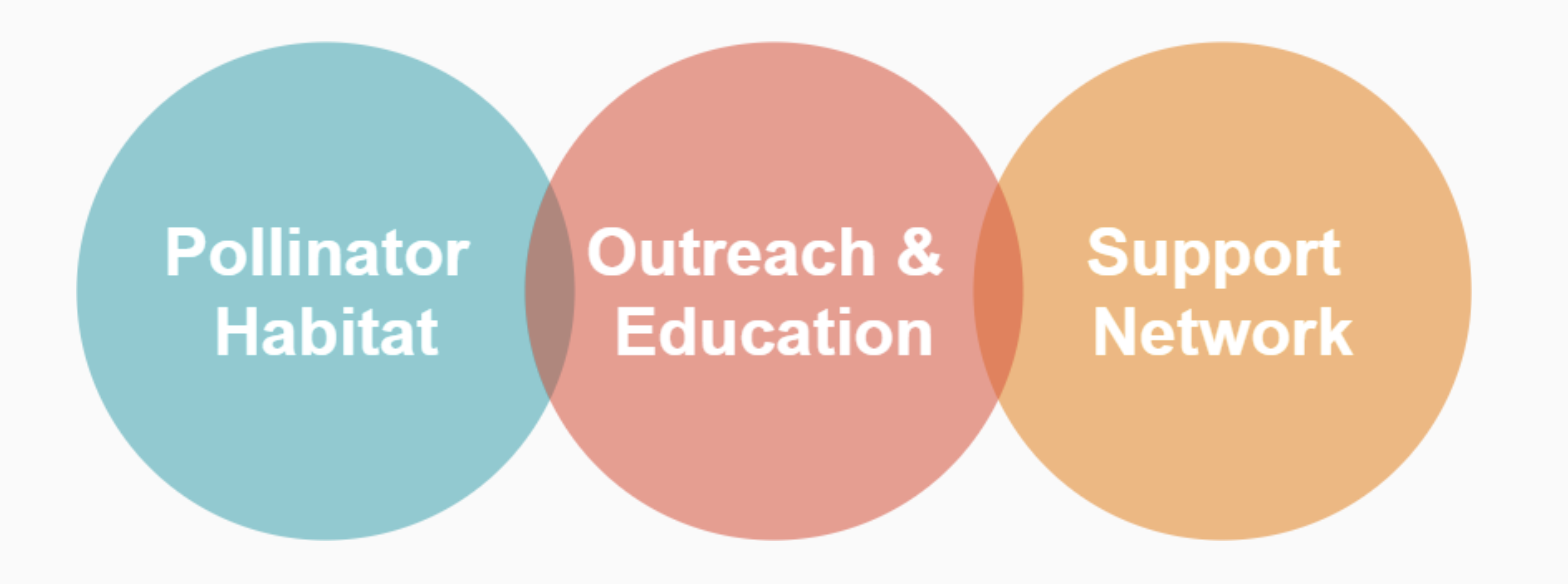
Enhancing Pollinator Habitat
In working to enhance pollinator habitat across campus, we successfully:
- Assessed existing habitats relative to what is known to be favorable pollinator habitat
- Identified high-quality areas and gaps
- Enhanced existing habitats and installed a new pollinator habitat at the Natural History Museum using best practices
- Developed an on-going pollinator habitat assessment using Survey123 as a habitat assessment tool and created a maintenance plan to continuously enhance pollinator habitat in all zones of the Ann Arbor Campus
Strengthening Education and Outreach
When engaging in efforts to strengthen outreach and education, we effectively:
- Identified existing efforts on campus and current interest in pollinators
- Filled in current gaps with new outreach and education tools and resources created by our team
- Provided recommendations for continued education and engagement
Cultivating a Support Network
In our efforts to create a support network of champions who will carry on further pollinator conservation practices across campus, we were efficient in:
- Establishing a steering committee that will continue education and service-learning opportunities focused on pollinators
- Cultivating a strong online presence to continuously celebrate achievements on campus
- Submitting an application for Bee Campus USA certification through the Xerces Society for Invertebrate Conservation
Project Deliverables
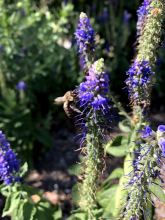
Over the course of our project, we completed several deliverables that can serve as future tools that will encourage greater pollinator conservation efforts campus-wide. We successfully enhanced current pollinator habitat through a garden installation located near the Museum of Natural History and the Biological Sciences Building, created digital multimedia and education and communication tools, and received approval for Bee Campus USA certification.
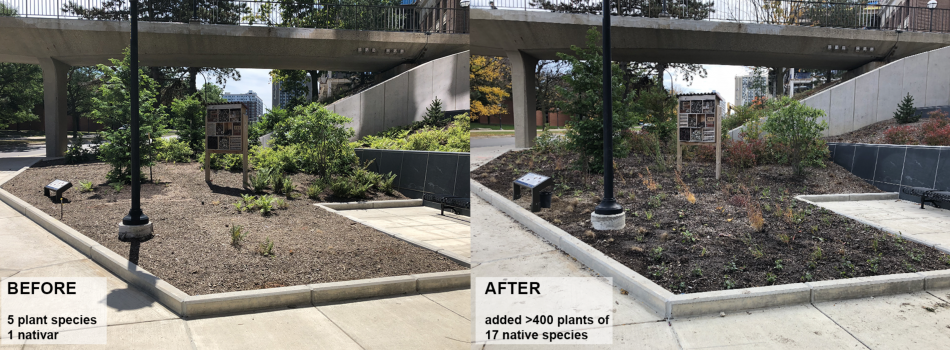
Acknowledgements
This project would not have been possible without the generous support of our advisor, clients, and partners. We thank you for sharing your time and knowledge with us during an especially challenging year. First and foremost, we thank our advisor, Dr. Sheila Schueller, for her unwavering support, creative problem solving, and sincere desire to help us grow. We also thank our clients, Anya Dale and Bill Kronberg, for their forward-thinking approach to campus sustainability. We also want to thank the Grounds Services team for teaching us about campus landscapes and testing our habitat assessment survey. Looking ahead, we thank everyone who volunteers to serve on the UM Bee Campus Committee. We are inspired by your dedication to supporting pollinator conservation on campus beyond the term of this project and look forward to watching the effort bloom. A huge thank you to Kira Berman for championing the existing and new pollinator gardens at the Museum of Natural History. We are so grateful for your willingness to share these important landscapes with the next generation. We also want to thank Shawn Severance and Mary Duff-Silverman for your years of stewardship caring for these and other pollinator-friendly landscapes. Many thanks to everyone who donated their time to answer our questions and guide us through this pollinator journey: Dr. Rebecca Tonietto, Shannon Brines, Caitlin Dickinson, Dr. Derek Van Berkel, Justin Schell, Sandy McCarthy, David Susko, Molly Martin, and The Xerces Society. Finally, we thank the School for Environment and Sustainability for financial support.

